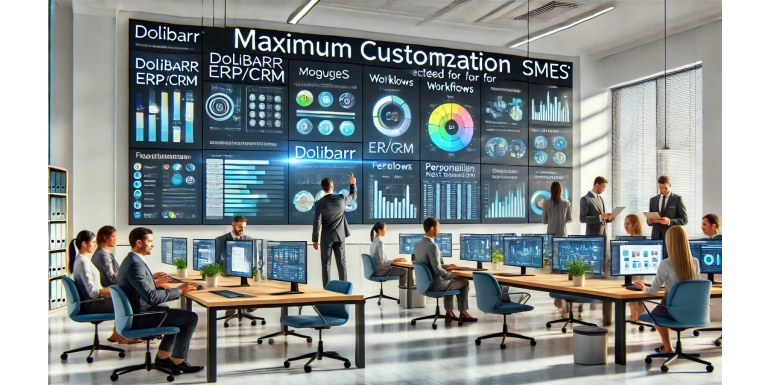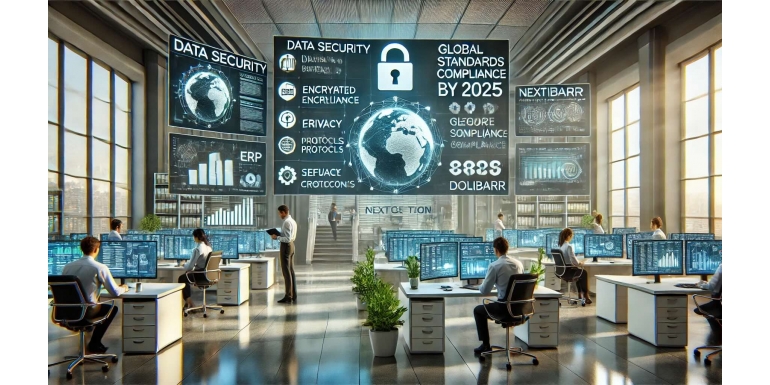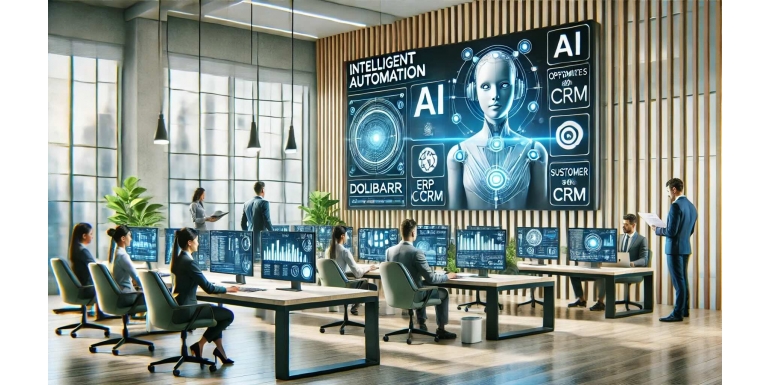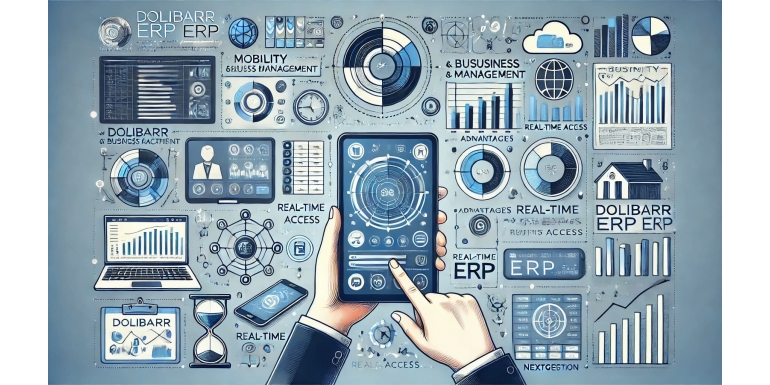
In the dynamic and competitive world of small and medium-sized enterprises (SMEs), efficiency and adaptability are key to success. As these businesses expand, managing multiple processes—from sales and customer relationships to inventory and finance—can become increasingly complex. To stay agile and competitive, SMEs often turn to Enterprise Resource Planning (ERP) and Customer Relationship Management (CRM) systems to streamline operations. One o
Data Security and Compliance in Dolibarr: Meeting Global Standards in 2025
Dolibarr 0 Comments views (8416)
In the digital age, where data is considered one of the most valuable assets, businesses are increasingly focusing on how to protect this sensitive resource. With growing concerns over data breaches, identity theft, and cyberattacks, regulatory authorities around the world are implementing stricter data protection laws. For organizations using ERP systems like Dolibarr, ensuring data security and compliance with these global standards is no longe
Intelligent Automation: The Integration of AI in Dolibarr ERP and CRM
Dolibarr 0 Comments views (9830)
In today’s rapidly evolving business landscape, the ability to adapt, automate, and innovate is key to staying competitive. One of the most transformative technologies driving this evolution is artificial intelligence (AI). The integration of AI into business systems is not only changing how companies manage their processes but also how they interact with customers. Enterprise Resource Planning (ERP) and Customer Relationship Management (CRM) sys
How Dolibarr Facilitates the Transition to Sustainable Management Practices
Dolibarr 0 Comments views (7799)
As environmental concerns grow and the need to meet sustainability challenges intensifies, many businesses are shifting their strategies toward sustainable management practices. In this context, ERP (Enterprise Resource Planning) systems play a key role in helping organizations adopt more efficient and environmentally friendly processes. Dolibarr, a flexible and accessible open-source ERP, stands out as a tool that helps businesses transition to
Dolibarr and Generative AI: Transforming Financial Data into Predictive Models
Dolibarr 0 Comments views (8090)
In an increasingly digital world, financial data management has become a top priority for businesses of all sizes. Small and medium-sized enterprises (SMEs) in particular are looking for ways to improve efficiency by automating processes while optimizing decision-making. Dolibarr, a flexible open-source ERP, meets these needs with robust financial management features. However, with the emergence of generative artificial intelligence (Generative A
Mobility and Business Management: The Advantages of Dolibarr ERP for Real-Time Access
Dolibarr 0 Comments views (7894)
Business management is rapidly evolving, especially with the integration of new technologies and the increasing mobility of teams. In 2024, companies face constant challenges related to managing their resources in real-time and ensuring that their geographically dispersed teams have access to critical operational information. This is where ERP (Enterprise Resource Planning) systems have taken center stage. The Dolibarr ERP, an open-source, flexib
